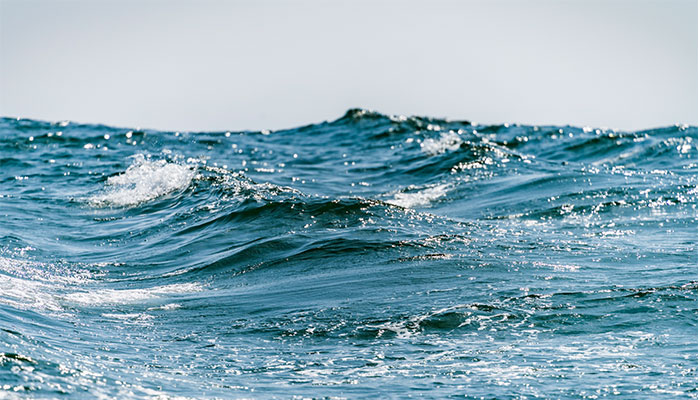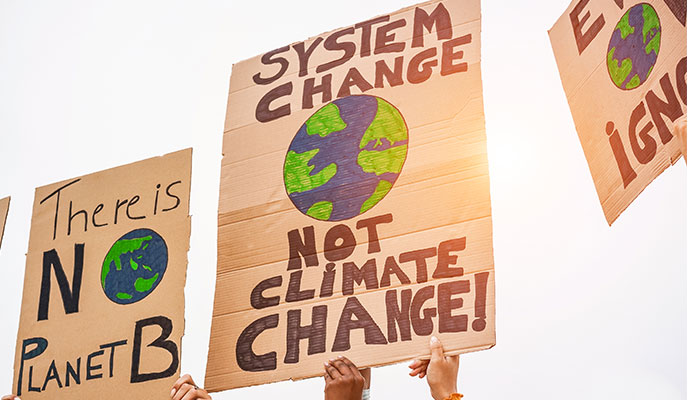The European Union could be key to preserving Antarctica’s pristine waters, with the timing ripe this year to gain global agreement for three new Marine Protected Areas in the Southern Ocean.
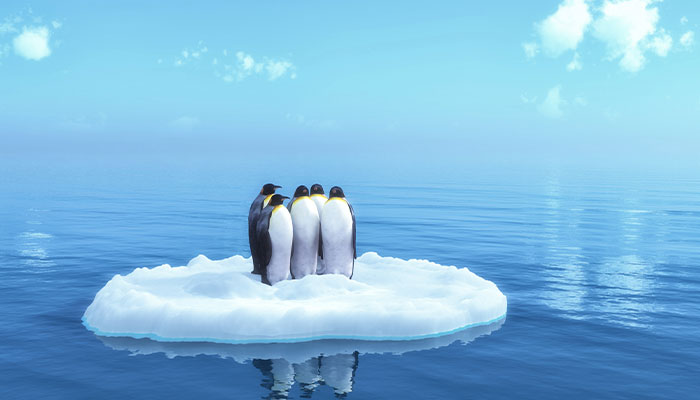
Standing together: Securing conservation zones to protect vital ecosystems in Antarctica needs consensus between 25 nations plus the European Union.
Macquarie University Associate Professor Nengye Liu will this week present to the European Parliament, advising the Members of the Parliament and high-level EU officials how to effectively engage with China to secure proposed new conservation zones to protect vital marine ecosystems in Antarctica.
“Rising geopolitical tensions between China and the West in recent years have become a new obstacle preventing China from supporting any Southern Ocean Marine Protected Area proposals,” says Liu, who is Director of the Centre for Environmental Law at Macquarie University.
The EU and Australia jointly proposed a new East Antarctic Marine Protected Area (MPA) in 2012, but for the past nine years have failed to secure crucial votes from China and Russia.
The conference could be an excellent backdrop for China to announce its support for proposed Antarctic MPAs – so 2021 could be a good year to turn this around.
In October, China is due to host the 15th Conference of the Parties for the Convention on Biological Diversity, a treaty committing the global community to ‘sustain life on earth'.
“The conference is an important occasion to determine a post-2020 Global Framework to guide the international community over biodiversity conservation in the next decade,” Liu says.
“It is also a good opportunity for China, as the host country, to showcase its leadership in global biodiversity conservation.”
Liu says the timing is significant as this conference takes place shortly before the annual meeting of the Commission for the Conservation of Antarctic Marine Living Resources (CCAMLR) where proposals for three new Antarctic MPAs will be decided.
“The conference could be an excellent backdrop for China to announce its support for proposed Antarctic MPAs – so 2021 could be a good year to turn this around,” Liu says.
Despite Australia’s strong presence in Antarctica, Liu says increasingly frosty relations between China and Australia mean the EU is needed to wield more influence on China.
What’s the proposal?
The East Antarctic MPA would protect around one million square kilometres across three zones critical for habitat and foraging for whales, penguins, birds and other wildlife.
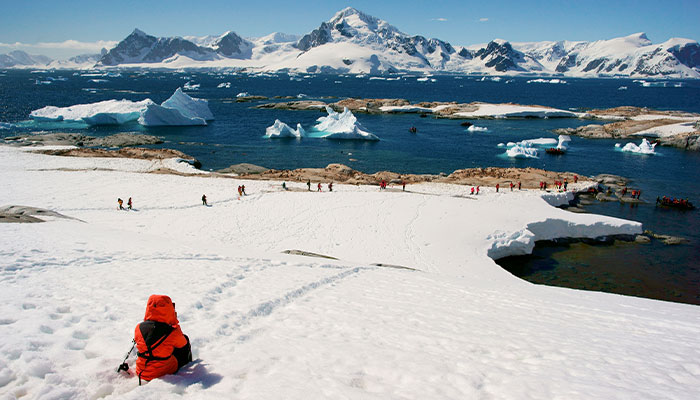
Tough love: Increasing tourism numbers are among the factors that threaten marine life and their habitats in Antarctic waters.
The proposed MPA provides scientific reference zones to help research the impacts of climate change on these ecosystems and the effects of fishing outside the MPAs.
Growth in commercial krill fishing, increasing tourism numbers and warming and acidifying waters all threaten the marine life and their habitats in the ocean around Antarctica.
The Southern Ocean makes up about 10 per cent of the world’s ocean surface and drives global ocean currents vital for life on earth, but was not protected by the Antarctic Treaty, signed in 1959 to preserve the continent for peaceful purposes.
Marine Protected Areas are growing in significance as the global community recognises the precarity of ocean habitats – and while less than three per cent of our oceans are currently under protection, there are goals to preserve 30 per cent of the world’s oceans by 2030.
In 2016, the world’s largest MPA was established in the Ross Sea, protecting 1.57 million square kilometres of the Southern Ocean from commercial fishing for 35 years.
This followed the 2009 declaration of an MPA on 90,000 square kilometres around the South Orkney Islands.
There are also proposals for two other MPAs in the Southern Ocean, one in the Weddell Sea and another alongside the Antarctic Peninsula.
What’s stopping the approval?
MPAs need to be approved by consensus between 25 nations plus the European Union who make up the Commission for the Conservation of Antarctic Marine Living Resources (CCAMLR).
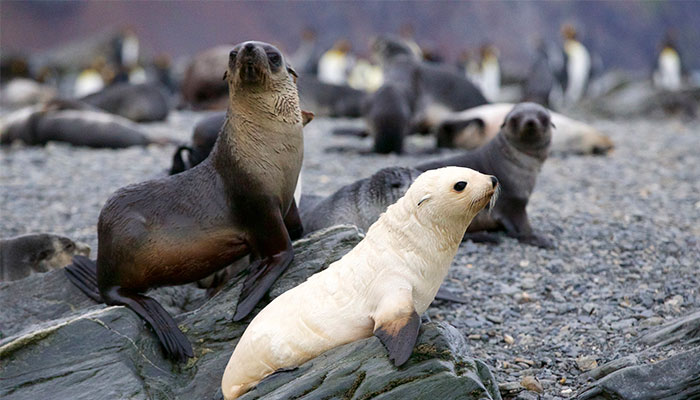
Under threat: The East Antarctic Marine Protection Area would protect around one million square kilometres across three zones critical for habitat and foraging for wildlife, including fur seals.
“China and Russia in particular are concerned about the ban on commercial fishing which may affect any future fishing opportunities,” says Liu, adding that China plans to expand its already-huge distant water fishing fleet further into Antarctic waters.
“They argue that we shouldn’t introduce an MPA until we have evidence that fishing is impacting these areas – but MPA supporters point out that we won’t know what the impact is until we compare the areas both inside and outside the MPA.”
Liu says that a number of other members with significant fishing interests in the region such as Japan, Korea and Norway, are now supporting the proposed MPAs.
US-China relations are now slowly bouncing back, especially in fields of common concerns like climate change.
“There is also suspicion – not formally voiced – from the Chinese delegation that because these MPAs overlap with historic territorial claims on Antarctica made by Australia and France, which are not widely recognised, that part of their motivation might be to strengthen these territorial claims,” says Liu.
“But the establishment of an MPA is a collective decision that won't actually strengthen or weaken anyone's claim."
Liu says that rising tensions following the US-China trade war during the Trump era, have discouraged China from supporting any Southern Ocean MPA proposals in recent years.
- How hidden disgust could stop us giving blood: new study
- Teens reap benefits of good connections with teachers
However, he says, there are reasons to be optimistic.
The Biden administration heralds more positive international dealings, and has expressed official support for the establishment of Southern Ocean MPAs.
“US-China relations are now slowly bouncing back, especially in fields of common concerns like climate change,” Liu says.
“After John Kerry's visit to Shanghai in April, US-China resumed dialogues in several fields, including fisheries.”
What can the EU do?
Liu’s presentation to the European Parliament on 4 June, ahead of World Ocean Day on 8 June, is part of a scheduled session on the EU’s Global Ocean Leadership forum to be introduced by European Parliament member Catherine Chabaud and the President of the European Commission, Ursula Von Der Leyen.
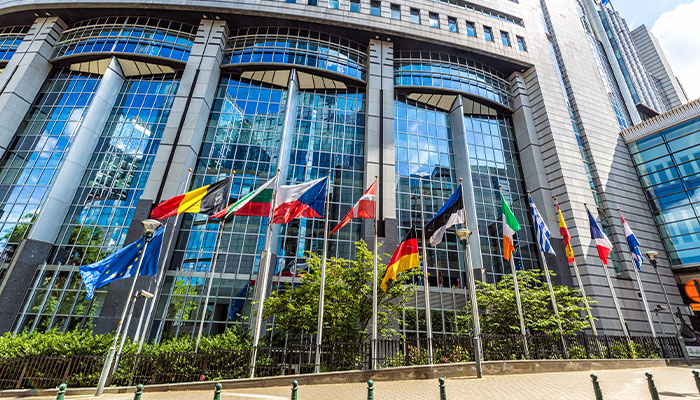
Flag bearers: The European Parliament building in Brussels, where Dr Liu will advise members and EU officials how to effectively engage with China to win protection of Antarctica and the Southern Ocean.
“The EU is in a unique position to take leadership to protect Antarctica,” says Liu.
“As a supranational organisation, the EU has no territorial claim in the Antarctic,” he says.
The Treaty on European Union gives the EU a mandate to preserve, protect and improve the quality of the environment for European citizens, Liu says – and at a policy level, the EU has been consistent, and advanced in its approach to addressing environmental issues.
But while the EU (unlike Australia) can take a moral high ground on the environment, he says they would be wise to avoid ‘preaching like missionaries.’
If we truly want Antarctica to be a pristine wilderness that can be protected for the future generations, then the establishment of MPAs is the logical next step.
“That might have worked for China thirty years ago, but not now, because they are also a major power,” Liu says.
He hopes to encourage the EU to make full use of rising international momentum to support MPAs and the diplomatic opportunities opening this year to achieve an agreement.
Liu will join academics from the USA and London to offer advice on effective approaches that the EU can adopt to secure the establishment of Southern Ocean MPAs.
“I think the key is to be genuine, and make your priority the environment,” he says.
“Yes, the EU is a long way away from Antarctica, but if we truly want Antarctica to be a pristine wilderness that can be protected for the future generations, then the establishment of MPAs is the logical next step,” he says.
“When you are genuine, you are fearless – and then, you become convincing.”

Associate Professor Nengye Liu (pictured) will present at the EU Global Ocean Leadership forum Winning Protection of Antarctica and the Southern Ocean. The forum will be available via a public live-stream from Brussels on Friday 4 June 2021, 14:00 to 15:45 CET. To register: https://us02web.zoom.us/webinar/register/WN_cbYvbxASSSSUef39VPNUBQ
Dr Liu is Associate Professor at Maquarie Law School and Director of the Centre for Environmental Law.

